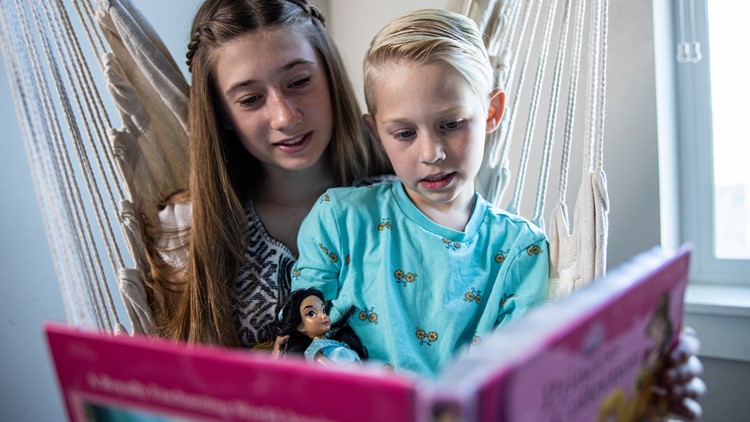PROVO, Utah — The debate between parents about letting their kids watch Disney princess movies isn't new.
It's been going on for years as some argue they're unrealistic and teach antiquated gender norms, while others point to a more recent trend of empowered female Disney leads, like Moana, as a sign of change.
Well, a study out of a university in Utah might have just settled the score, and those claiming princess culture is toxic need to "Let It Go."
In the longest study to date on the topic, Brigham Young University professor Sarah Coyne found kids who engaged with princess culture had a higher likelihood of holding "progressive views about women" and were less likely to support "attitudes of hegemonic masculinity."
“As a developmental psychologist, I’m interested in looking at things over time,” Coyne said. “What’s fascinating is that princess culture has some really deep and beautiful things about womanhood and relationships. If we can grasp onto that, it can be truly healing for humanity.”
The study first began in 2016 when Coyne was looking into princess culture's ability to enhance stereotypes in girls in pre-school. Since then, BYU says she's stayed in contact with the participants as they reached their early teen years.
According to Coyne's assessment, while princess culture initially had a negative effect, over time the 307 children who interacted with it later thought differently about gender.
“Princess culture gives women key storylines where they’re the protagonist. They’re following their dreams, helping those around them, and becoming individuals who aren’t prescribed a role because of their gender,” Coyne said regarding the new wave of Disney princesses.
And those progressive views aren't just reserved for girls. Coyne says boys who engage with princess culture at a young age are better at expressing emotions later in life.
“Boys who are exposed to princess culture earlier in life tend to do a better job expressing emotion in their relationships,” she said. “Rather than shutting down their feelings or feeling like they should fight someone who challenges them, they can express their emotions in non-violent ways.”
Parents can also help their kids better understand lessons from princess culture by focusing more on the "humanity" of each princess and less on their appearance, according to Coyne.
The following are other outcomes the study found in kids with "high" princess culture engagement:
- Viewing education, relationships and careers as equally important for men and women.
- Less likely to strictly adhere to cultural gender norms.
- Were more supportive of letting people express their emotions.
- Developing a positive body image (over time).
Coyne's study achieved a nearly even gender split with 51-percent of those examined being girls but was also made up of 87-percent of kids who identify as being white.



